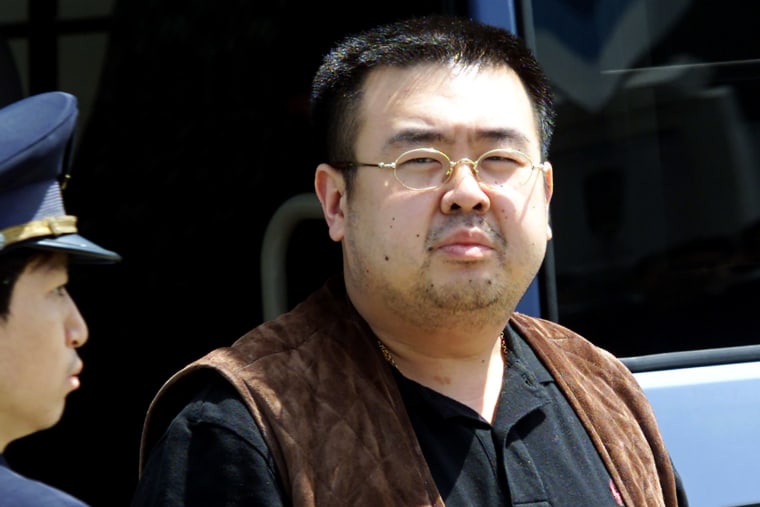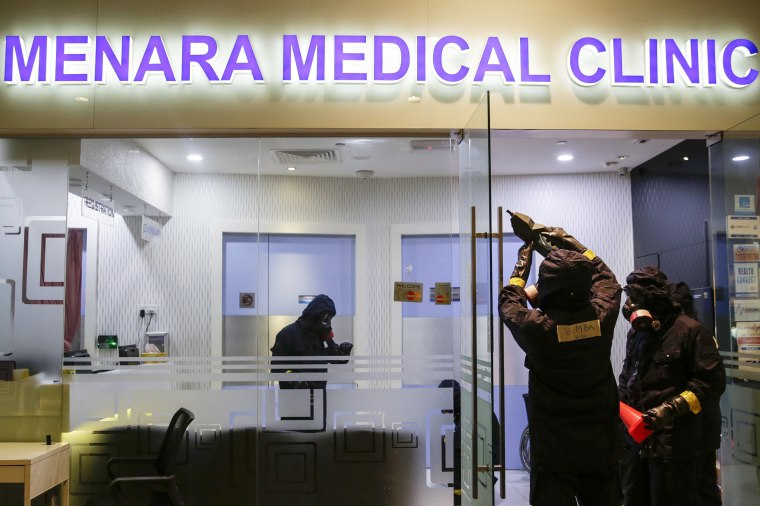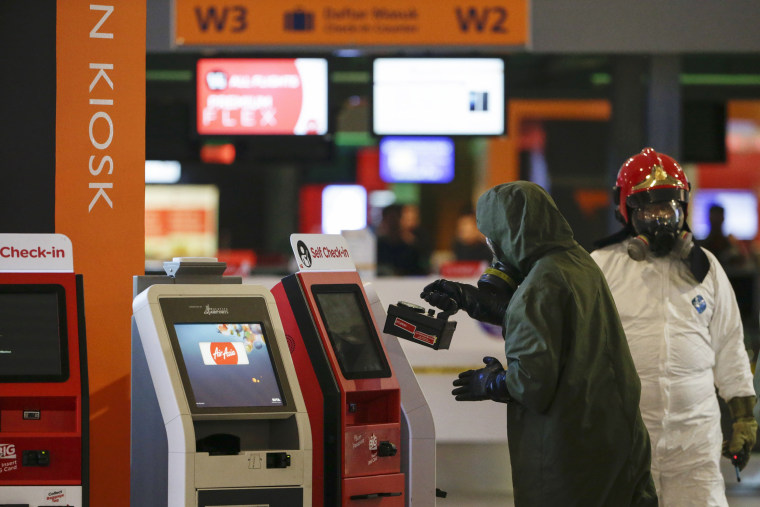South Korean intelligence agencies have branded the killing of North Korean dictator Kim Jong Un’s half-brother as an act of state terrorism perpetrated by the North, a lawmaker with close ties to intelligence told NBC News.
South Korea’s National Intelligence Service (NIS) told lawmakers on the National Assembly’s Intelligence Committee Monday that the suspects wanted in connection with the death of Kim Jong Nam worked for North Korea’s foreign and security ministries.
"Our National Intelligence Service told me that North Korea's General Bureau of Espionage was responsible for the terrorism and the assassination of Kim Jong Nam but what Malaysian authorities discovered is that it was North Korea's National Security Agency that took the lead," Lee Cheol Woo, a South Korean lawmaker and the chairman of Intelligence Committee, told NBC News.
“Since it was the North Korean National Security Agency as well as its Foreign Ministry, who were behind the terrorism, we can say that it was North Korea's state-led terrorism," Lee added.
North Korea has angrily denied any connection to the killing of Kim Jong Nam, who died after being attacked with VX nerve agent in an airport terminal in Kuala Lumpur, Malaysia, on Feb. 13.
It is impossible to report independently in North Korea, and NBC News has been unable to verify any of the assertions.
Another South Korean lawmaker who described being briefed by NIS, detailed how the agency believed the killers carried out the attack.
“The assassination team was divided into the two divisions, one carrying out the assassination and another providing support,” Kim Byung Kee, a South Korean lawmaker and secretary to the intelligence committee told NBC News.
Related: Video Shows Kim Jong Un Airport Attack
He said the South’s intelligence agency briefed lawmakers that the support team consisted of four North Korean diplomats from the country’s embassy in Malaysia, who aided in the perpetrators' mobility and escape.
The team was comprised of officials from North Korea’s foreign and security ministries, who recruited the Vietnamese and Indonesian women who have been arrested in connection with the death, Kim added.

Malaysian authorities are pursuing several North Koreans in connection with the death, many of whom they believe have left the country.
In a move that underscores the high tensions between the two countries over Kim’s death, Malaysia threatened Saturday to issue an arrest warrant for a North Korean diplomat currently posted to the country’s embassy in Kuala Lumpur. Such a move would be a significant departure from the Vienna convention, which governs how diplomats are treated by their host governments.
In addition to the controversy surrounding the death of Kim, South Korean intelligence were reported to have briefed lawmakers that Kim Jong Un had arrested the head of his National Security Agency Kim Won Hong, and brutally executed five senior security officials.
Lee Cheol Woo said the executions were carried out using anti-aircraft guns.
One lawmaker on the intelligence committee told NBC News that Kim had taken the action after being enraged by an unspecified false report, while another said it was because the leader was angered that the security chief had abused his power and tortured senior officials.
The agency, however, has a mixed record of accurately reporting on goings on in the North. In May 2016, it admitted that Ri Yong Gil, a senior figure in North Korea’ military it reported had been executed, was still alive, according to media reports.

